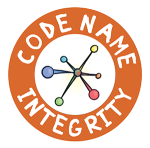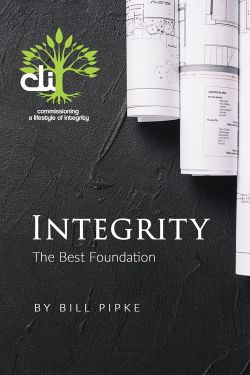Dignity - Part 1 Session 2
Welcome back.
I used to have a poster that said "I am created by God, and God doesn't make junk." You and I have a wonderful worth and purpose. We've been talking about Ruth, and Ruth and showing us that we are not defined by our circumstances. People who are unsure of their self-worth often feel that life is a burden for them to bear. And typically, they worry that something's going to happen. And they lack a sense of excitement about life. And they fear that their possibilities are going to be limited, their creativity stopped.
Ruth Chilion was a woman living in Moab. Those two things--her gender and ethnicity--could have limited her future; but she chose to live with dignity. She did not define herself by her tribe, her culture, her class, her age, her gender, her physical condition, her education, her wealth, or her skills. She knew those things had influence, but they were not what defined her.
Ruth Chilion understood that there were millions of people that lived while she was alive, and she may not have been the world's strongest, smartest, or prettiest, but she would be the best Ruth Chilion she could be.
Pride suggests that you're special because you're better than others. But dignity, on the other hand, suggests you will be the best you you can be.
Life can be very small and meaningless if we only think of ourselves. And so, Ruth found ways to help Naomi, her mother-in-law; and by serving her, she found purpose beyond herself. Her charity kept her from going down into despair. And if you are interested in increasing your sense of purpose, what I would suggest is: find a project that demands your input. Involve yourself in a community outside yourself. Or develop a redemptive perspective about your challenges.
The German philosopher Immanuel Kant was considered to be the key figure in the development of our contemporary concept of dignity. For Kant, dignity meant the equal and inherent worth of every individual. Kant thought that all human beings occupy a special place in creation; and so do I. What if people treated one another as though everyone was a VIP? What if we treated everyone as though we were worthy of acknowledgment and respect? Worthy of belonging and an embrace? Worthy of freedom and independence? Worthy of safety and security? Worthy of being treated fairly and justly?
Now, we are all alike in many ways, but we are also dissimilar, and our dissimilarities can reach way beyond race or culture. Our differences can ignite negative attitudes towards each other. It's challenging for an introvert to accept an extrovert, for the rich to comprehend the world of the poor, for the tall to get the perspective of the short, and for men to understand the world of women, or vice versa.
Now, there are a variety of psychological tools available to help us to understand each other. One of the members of our Canadian Commissioning a Lifestyle of Integrity board introduced our team to an excellent assessment tool called the Kolbe Index. When I took the Kolbe survey, I thought, "How could such a short survey reveal much about who I am?" And I was surprised how accurate the tool really was. My Kolbe index revealed who I am, and how I approach life. And it was just as accurate for the rest of the board. And with the Kolbe insights, we were able to identify the contribution each person made to the group and how each one made the team better.
The impact of this information had immediate implications on our relationship, and it enabled us to identify unique strengths, and to develop our team culture. And by valuing each other, we began to have a lot more joy; and it certainly ramped up the motivation.
Now, in my book Integrity: The Best Foundation, I have created a chart to help you compare pride, insecurity, and dignity. And I would invite you to turn there in your books. As you look at this chart, you will see that it lays out before you how pride influences your actions, and how you see yourself, how insecurity does that, and how dignity does that.
So here is the group assignment:
Go through the chart and compare how pride, insecurity, and dignity guide the way we see life, and how we respond to it.




